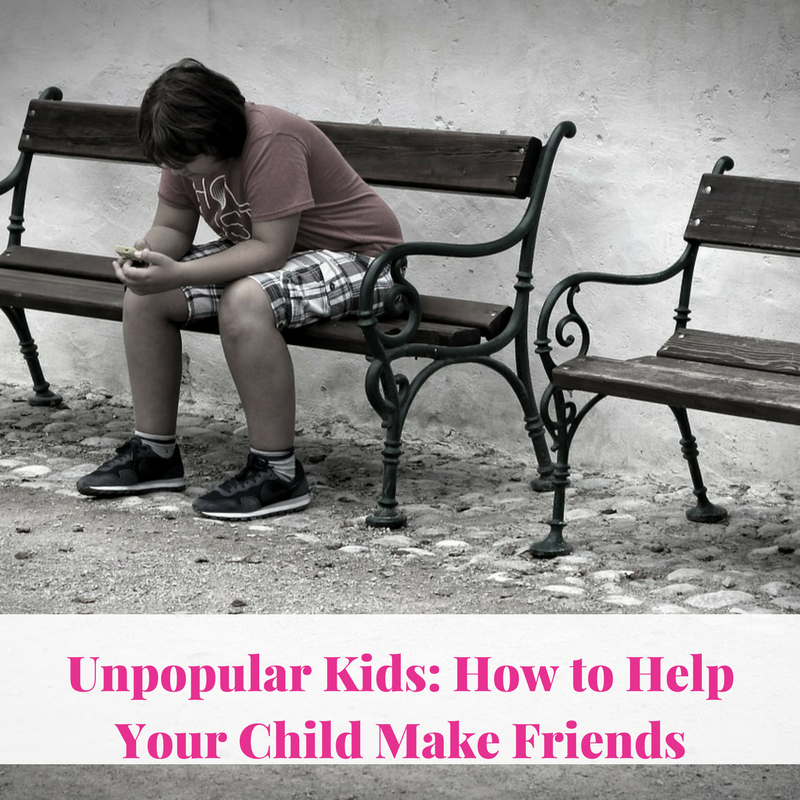Each child has a different personality, but all parents want their children to achieve the most out of life. It is a hard for parents to see their kids not reaching their full potential, and not being accepted by society. Even though there are positive values of being an introvert, when it comes to children this can be the reason to be singled out and rejected. It is the job of parents to help their children navigate social obstacles faced, and to adopt social skills that will help them in life. Through hard work, reason, and experience, your child will become popular, have friends and find his place in society.
Give Them Something to Look Up to
Children learn from example and observation, so it is important to shield your children from socially unacceptable behavior. Most children idolize their parents, so it is important that you show strength in conflict situations. Be assertive, stand by your ideas and beliefs, and manage aggression. Your child will pick up on weakness and will think that it should act the same way. Also, teach your child the value of being polite and helping others by initiating it in your own behavior. If you show compassion, empathy, and respect for others, your child will mimic your actions, and do the same in similar situations.
Talk to Your Child
Treating your kids as reasonable people will show you trust them, and believe in their capacities. Have a heart to heart talk about social skills and how to act when encountering various social situations. Be positive when addressing difficult issues by telling them how you would act in a similar situation, not just telling them what not to do. List important points of social acceptance and how it will help them. Make sure you encourage your child’s self-growth by focusing their attention on the positive traits of their character. This will help them realize their quality as an individual, and the values they should present to other kids.
Encourage Group Activities

Group activities always rely on each person to contribute to the collective goal. By pulling their weight as individuals, they will be accepted, earn the respect of the entire group, making friends and socializing in the process. Encouraging children to take up a team sport can be an ample way of boosting their confidence around peers. Team sports play down competitiveness, and aggression of individual sports, establishing trust and a sense of belonging. On the other hand, if your child is not into sports, encourage them to start a band or a fan club. They will enjoy the activity and will surround themselves with like-minded people, ensuring social success. Most importantly, never push your kids to participate in an activity they don’t like or are not good at, because it can back-fire, so always be mindful and supportive of their choice.
Throw a Party
Parties are great ways to engage social skills and make friends at any age. Kids especially like parties, and kids who are hosts usually have a boost of popularity and move up the social ladder. If you have doubts about your child’s social abilities, arranging a party can provide a window into their behavior around peers. Not only that, but by being creative, and maybe going for a superhero, army or spy party, you will provide activities everyone can participate in. Focusing on the moment, other kids will forget previous negative associations that may have surrounded your child, and initiate acceptance and friendship. And come Monday, the success of a party will be on everyone’s lips, boosting your child’s morale and social status.
Let Them Learn from Experience
Even after everything, your children will learn best how to conduct themselves in social circumstances from experience. It is vital that you believe in your children, and have confidence in them to navigate the challenges they are presented with. Take a step back, and try not to interfere directly. Hold back on protectiveness, and rely on them to make the right decisions. They should follow your advice and learn social behavior on their own. Importantly, your kids should learn how to navigate social situations, not with adults but with peers. If they mature too quickly, their behavior will be singled out as unusual, and will soon miss out on being a child, which can have serious implications in later life. So, even if your child has a hard time with other kids, the experience will stimulate him to overcome them.
In the end, it is important to remember, that you – the parent, have a great role to play when it comes to your child’s social acceptance. Be mindful of their individuality, and assertively guide them through social circumstances they face. Ultimately, if you believe in your child, and work on them achieving their full potential, other children will realize their worth as well, and you child will be on the road to become a valued member of society.
Do you have a tip to share for helping a child make friends?
About the Author
Tracy Clayton
Contrbuting Writer
Tracey is a full-time mom of three girls. She loves cooking, baking, sewing, spending quality time with her daughters and she’s passionate for writing. Her motto is: “Life the life you love, love the life you live.”




Sometimes a kids shyness gets in the way of making friends. Or it can be low self esteem too.